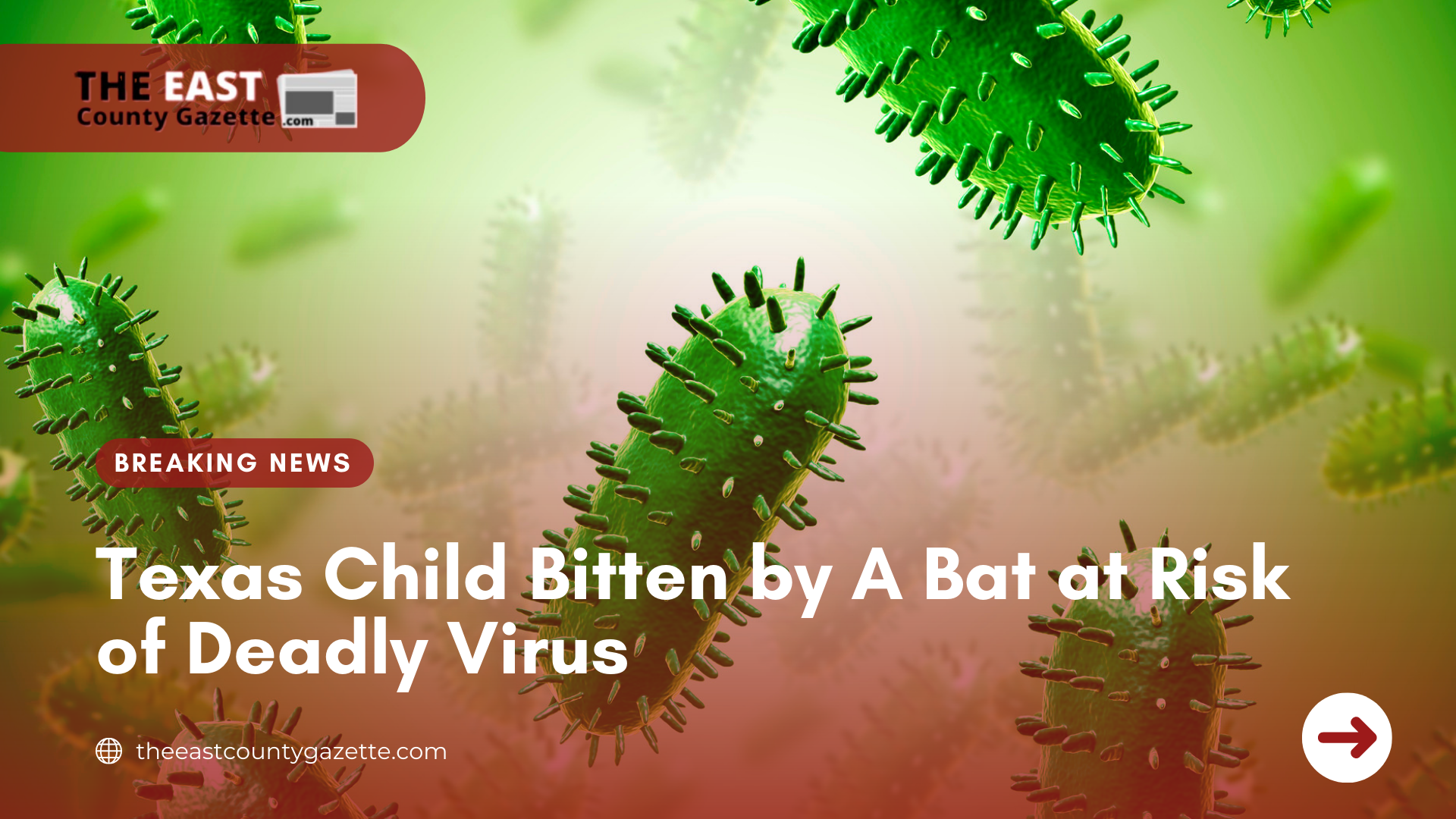A child in Texas is currently undergoing treatment for a rare case of rabies, according to the Department of State Health Services (DSHS).
DSHS said it has contacted anyone who may have been exposed to the bat or rabies patient directly. Those who were contacted will be assessed for the need for a post-exposure vaccination to prevent getting sick with rabies.
No further information was shared regarding the child’s condition.
Read more: Survey Shows Higher Antibody Levels Among Vaccinated Texans
Rabies virus, a Lyssavirus that infects mammals, is transmitted through saliva, most commonly from the bite or scratch of an infected animal. In the United States, several variants, or strains, of rabies virus circulate in animal reservoirs, including raccoons, skunks, foxes, and bats.
Rabies virus infection, regardless of the variant or animal reservoir, is fatal in over 99% of cases, making it one of the world’s most deadly diseases. There is no treatment once signs or symptoms of the disease begin, and the disease is fatal in humans and animals within 1–2 weeks of symptom onset.
Read more: Abbott Goes Against Biden, Bans COVID Vaccination Mandates in Texas
The CDC says that each year, rabies causes approximately 59,000 deaths worldwide, including approximately two deaths in the United States.
During 1960–2018, among 89 U.S. acquired human rabies cases, 62 (70%) were attributed to bats. Dog bites acquired during international travel were the cause of 36 cases.
Awareness of the risk of rabies from wildlife, especially bats, and during international travel is needed. Understanding the need for timely administration of PEP to prevent death is critical.
Read more: Risk of Dangerous Blood Clots Higher in Recent COVID-19 Cases
The DSHS said there are a number of things people can do to help stop the spread of rabies:
- Never approach wild animals
- If bitten or scratched by a bat or any other animal, wash the wound immediately with soap and water. Then, seek medical attention to be assessed for potential rabies exposure
- Ensure domestic dogs and cats are up to date on rabies vaccination, as required by state law
- Consider protecting livestock and domestic ferrets by vaccinating them.
Bats are currently the leading cause of human rabies deaths in the United States. Unlike rabies management programs targeting raccoon, fox, and coyote populations, bat vaccination is not yet logistically feasible, nor are any rabies vaccines currently approved for use in bats.
Despite the rabies exposure risk, the vast majority of bats submitted for testing (94%) do not have rabies. Thus, widespread killing of bats is not recommended to prevent rabies.
Read more: Next Global Pandemic Threat: Nipah Virus?
However, increased awareness of the risk for rabies from bats and knowledge of when to seek medical attention for PEP are needed.
In addition to bat rabies cases, international travel-related rabies cases occur because of a lack of awareness about the ongoing global risk of rabies in dogs.
The last human case of rabies in Texas was back in 2009.
Stay updated with more news here with us at the East County Gazette.

